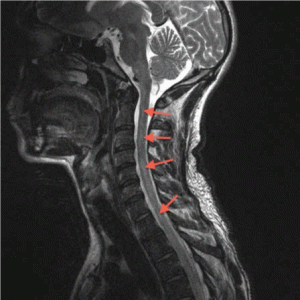Ten patients (6 patients receiving infliximab, 4 patients receiving etaner-cept) only had anti-DNA antibodies and skin manifestations classified as “limited skin lupus,” whereas 12 patients (9 patients receiving infliximab, 3 patients receiving etan-ercept) had systemic manifestations and met the American College of Rheumatology lupus criteria. One patient had CNS manifestations. None of the patients had pleural effusions or nephritis, although one patient had a pericardial effusion. 
There are no specific diagnostic criteria for drug-induced lupus, but certain immunologic features of drug-induced lupus help distinguish it from other autoimmune diseases. Patients with drug-induced lupus typically display anti-histone antibodies, which are present in > 95% of cases. When associated with TNF antagonists, anti-double-stranded DNA antibodies are usually elevated as well. Patients with drug-induced lupus can have a variety of systemic symptoms, including fever, myalgias, rash, arthralgias, arthritis, and serositis.
Hematologic abnormalities and more severe manifestations, such as kidney disease and CNS involvement, are uncommon. Establishing the diagnosis is usually based on the detection of clinical manifestations consistent with autoimmune disease while on a drug known to cause drug-induced lupus, which resolve within a short period after discontinuation. The presence of suggestive serologies may also be helpful.
This is the first report of etanercept-induced lupus presenting as an isolated pleural effusion. Fortunately, as demonstrated in this and other reports, drug-induced lupus associated with anti-TNF agents is reversible with withdrawal of the offending drug. Making an accurate diagnosis can be difficult because pleural effusions may be erroneously attributed to the primary inflammatory disease. Given the variable presentations associated with anti-TNF agent-induced lupus, clinicians should be aware of this adverse effect in order to maintain a high index of suspicion.